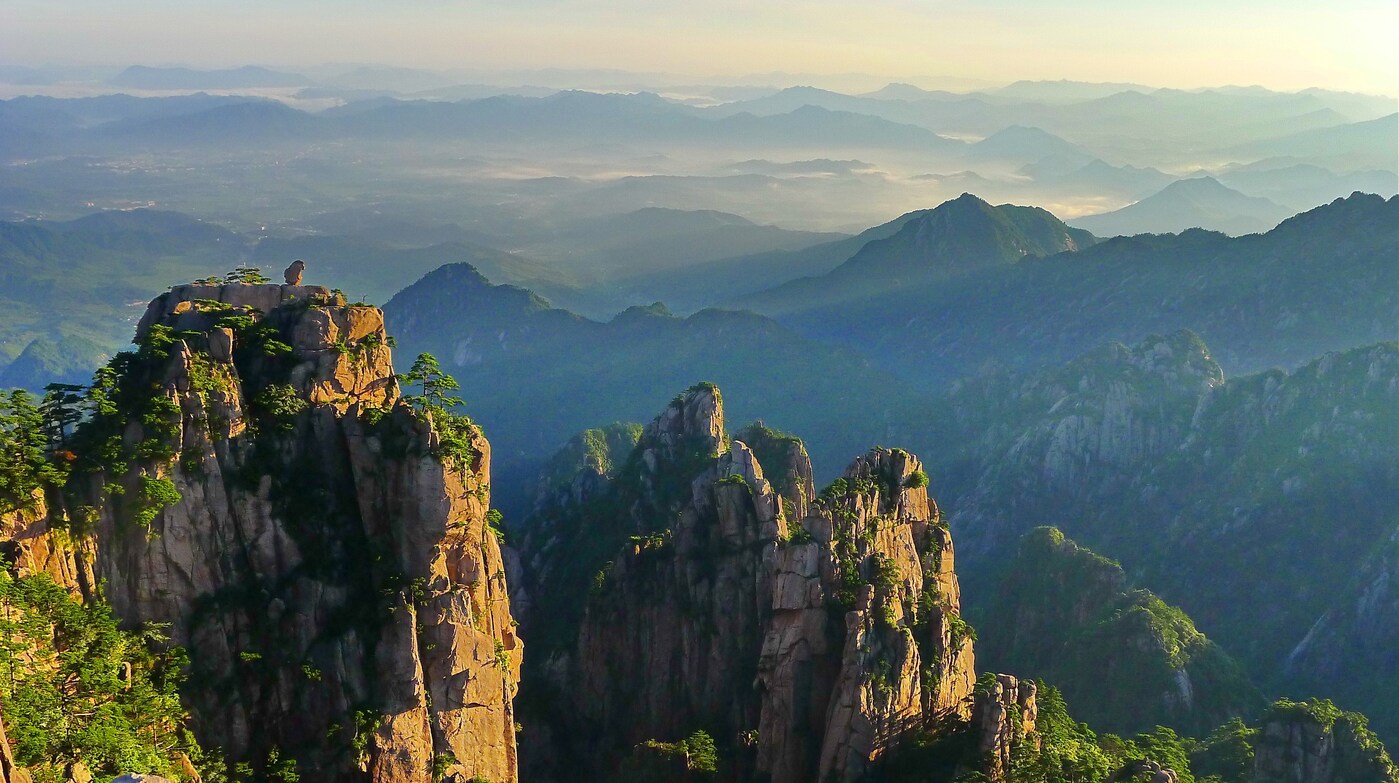Translated By Tara Lau
Once poet Chen Zi’ang of the Tang dynasty in Youzhou of northern China stood on the gold platform built by King Yanzhao, he saw a boundless expanse of land below, and said a poem out of overwhelming emotion:
“I see none of the ancients coming before,
Nor those coming after.
Thinking of the vastness of heaven and earth,
I burst into tears, alone and sombre.”
He feels humans are so insignificant that we no longer see the saints, sages and wise monarchs of yesteryear, nor righteous warriors who will make phenomenal contributions tomorrow. Right then, thinking of the immenseness of the universe and depth of history and wondering how many heroic figures have passed on and how much great merit and achievement have faded, the poet is deeply saddened and cannot help tearing up.
Of course, the lifespan of a human is indeed minimal in the enormous backdrop of space and time. Entangled by our own self-generated karmic force from one life to the next, we go through the suffering of life and death transmigrating in the six paths of existence, and receiving retribution by nothing but karma. And being fortunate enough to have reincarnated into a human body in this life, humans occupy a mid-level status among the ten Dharmadhatu realms. But human life lasts only a matter of decades and is gone in the blink of an eye, hence the saying “To miss one breath is to be a life apart”. Let me ask you, then, for these mere decades living helter-skelter in a mortal world full of the rat race, what is the point? And upon death eventually, where does one go?
Admittedly, however, there is something critical in human existence that most people ignore, that is, the issue of life and death. We must get to know it, understand it and see through its nature so as to transcend it.
When the Chan master Yongjia Xuanjue first met Sixth Patriarch, he said, “Life and death matter, as impermanence will strike soon”, meaning to say that since a human’s life and death count hugely, everyone should follow Buddha’s teachings in their practice to be freed from their shackles as soon as possible, as impermanence may come calling any moment. Impermanence here means the day of dying. However, most sentient beings have misunderstood the meaning of life, trying their best to focus on food, clothing and shelter and whiling away the days of their existence. The desire for wealth, fame and fortune has corrupted so many heroes that ancient sages hence warn us, “Only when one day impermanence arrives does one realize they have lived in a dream, but then nothing can be taken with them except karma”. When someone is about to die, of all material objects in their possession including money and assets, we wonder, what one single article could they take with them?
Ordinary people spend their entire lives focusing on the rise and cessation of conditioned dharmas, and have no interest nor time to probe or discuss their own spiritual awareness and inherent Buddha nature that has neither rise nor cessation. In fact, Sakyamuni Buddha tells us that all sentient beings can become Buddhas. When they have gone through the practice to eliminate all karma resulting from confusion, the impact of their immortal svabhava, i.e., Buddhahood, which neither arises nor ceases, will be revealed. By then, they could avert reincarnation among the six paths of existence, and transcend the suffering of life and death to reside in eternal joy.
Ladies and gentlemen, this immortal, permanent svabhava lies deep within your own mind, which, in Buddhist scriptures, is variously known as the real mark of the dharmas, the true mind, the wonderful mind, Buddhahood, the empty mark of the dharmas, and real mark prajna. It is awaiting you to explore, discover and personally experience. Have you, yet, cherished its existence and tried to give play to its incredible power?

